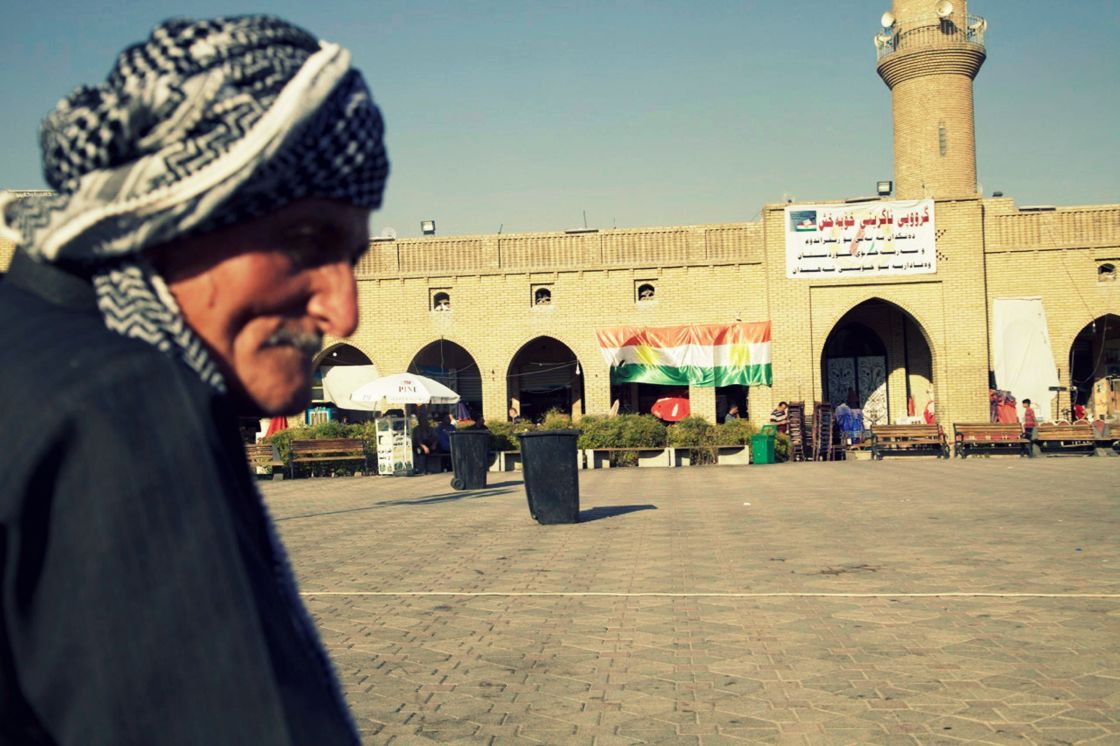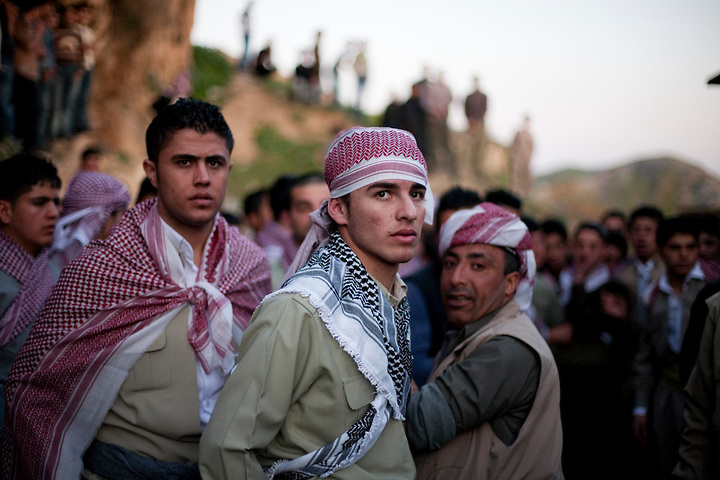- Statements & Documents
- Posted
Draft Theses of the Central Council of the People Will Party on «the Kurdish issue and the Peoples of the Great East»
In light of the great complexity surrounding the Kurdish issue on several levels (local, regional and international), and while Syria and its people approach the salvation of the disastrous crisis, through a political solution, in preparation for the formulation of a new Syria, People Will Party proposes this draft theses about «the Kurdish issue and the Peoples of the Great East», and present them for a public debate, and for discussing them through the party’s newspaper and website, in the framework of preparations for the next party conference.
Through this project People Will Party clarifies its perception of this important issue that concerns the Kurdish people as far as all the peoples of the region.
The following is the full text of the project:
Draft Theses of the Central Council of the People Will Party on «the Kurdish issue and the Peoples of the Great East»
Damascus 2016
1. Introduction
- The Kurdish issue in the Great East, which extends from the Caspian to the Mediterranean, is one of the most complex issues historically held today, by various external and internal factors.
- The Kurdish issue has many peculiar characteristics of its own, and it is also a regional-international issue, so that any partial solution of it will not be sustainable in its nature.
- Imperialism, in its attempts to vent its suffocating crisis, is trying to use all direct and indirect forms of incitement, fabricating tensions, and national and sectarian clashes, as a complement to its old policy of “divide and conquer”, but at a higher level, with the aim of further dividing what is already divided, and fragmenting what is already fragmented. (Sykes-Picot 2), aiming at continuing the distraction of the peoples from their fundamental struggle with imperialism, focusing instead on secondary conflicts that dominant politics and media are attempting to transform into primary ones.
- The handling of the Kurdish issue is gaining special importance today, especially in a time when the crisis-burdened US imperialism is escalating its actions of fueling the feelings of ultra-nationalism eliciting another opposite ultra-nationalism as a reaction. US imperialism is also escalating the situation up to the point of feeding some separatist and divisive tendencies, which serve as “clefts” favorable for imperialism to complement the functional role of those other secondary clefts of the sectarian type.
- Over the past years, and through the period of its comprehensive capitalist crisis, imperialism has extensively invested in conflicts of this kind, producing fascist extremist religious and sectarian organizations such as al-Qaeda and Daesh (ISIL), and the like, which have almost arrived to ending of their proxy role in our region.
- The nature - and pace - of the worsening of the crisis of capitalism, as a system and structure, which is reaching a dead end, along with the objective fates of the current transformations that will end the era of imperialist hegemony, reaffirm the validity of previous statements about the end of the era of the nation-states towards higher and more complementary forms, capable of achieving the real and legitimate interests of the peoples of the earth.
- These facts do not eliminate the importance of the phased struggle to eliminate all forms of discrimination practiced against any people of the Greater East and the world, including the Kurdish people.
- In order to present it for the public debate and enrich it further, the Central Council of the Syrian People's Will Party declares its vision about this complex, combined and accumulated issue in the form of theses aimed at contributing to the formulation of a genuine nationalism- and internationalism-based position, that nips the exclusivist, discriminatory, isolationist and divisive proposals at their roots, whether those proposals were advanced by the imperialists, or any kind of a narrow-minded nationalist ideologue, whatever their alignments are.
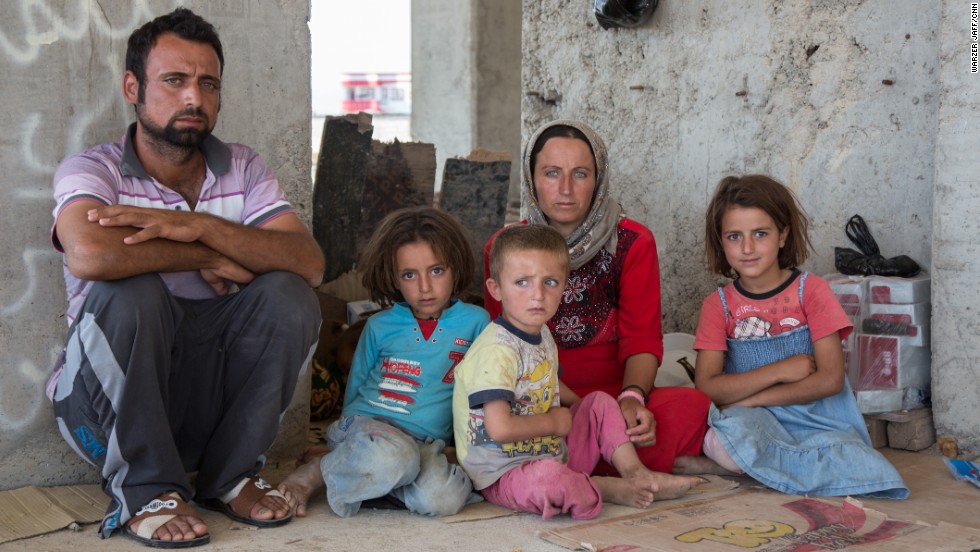
2. The overall capitalist crisis and the imperialist exits
- The current crisis storming the imperialist centers is the deepest crisis in history, and the exit from it cannot be similar to that of the previous crises, which ended through a horizontal expansion of capital – whether by force or economic means – because this expansion had reached its maximum extent.
- The global capitalist crisis can be the final one, and the knockout that may end capitalism. In light of the newly formed balance of international forces, Washington is no longer the Number One power in the world.
- Crisis-burdened imperialism continues to use direct and indirect forms of provocation, escalating tensions, and eliciting national and sectarian clashes, in order to reach at “Sykes-Picot 2”, through making the dominant policies and mainstream media focus on transforming the secondary conflicts to primary ones.
- The Programmatic Topics adopted on 26/11/2010 by the Ninth National Meeting of the National Committee of the Unity of the Syrian Communists (the organization which became the People Will Party of today), states the following: "the Sykes-Picot imperialist frontiers… are now being planned to be a space for various explosions through the intentionally-fabricated historical defects made at the time of drawing their maps"
- Imperialism, especially the US imperialism, is redeploying and relocating its troops, in the context of its withdrawal from the region, because the arrival of these forces to the maximum extent of their deployment, with their high costs, can no longer play the role of the advanced barracks to protect the imperialist interests directly. However, by trying to retain influence and remote control, American imperialism has been trying to leave the region in a state of chaos and infighting for decades, in order to curb its big rivals and prolong its survival in the midst of its suffocating crisis.
- The fundamental conflict that continues today is the struggle between the pole of imperialism and the pole of peoples. There are many forms and examples of peoples and countries rejecting and expelling the brutal capitalist model of development, as a result of the impossibility of reconciliation with its aggression resulting from the continuous narrowing of the margins of its revenue – and of its maneuvers consequently.
- Imperialism is in a state of confusion about the possible exit, and this will lead to sharp political and social divisions within the capitalist and imperialist centers themselves, and the evidence and indications of this are too numerous to be counted here.
- Imperialism is at the crossroads now. It has only two options, reflecting the internal conflict between the different wings and currents within the imperialist centers, especially in Washington: (1) either a sharp and rapid collapse if adopted the use of direct force. (2) or a gradual and smooth decline with adoption of a soft power option that includes some forms of direct force too.
- What happening in our region today is a combined situation of these two options, under the title of "clash of civilizations", in addition to the "creative destruction", which its latest created tool was Daesh organization, which is now manifesting the possibility of its decline for subjective and objectivity reason, internationally, regionally and locally.
- Forces of war have tried all means to achieve their goals in fragmentation and expropriation of countries, and the two most important means they use are: (1) “burning from outside” through direct invasion or manufacturing, arming and funding the invasion of fascist forces, whether in their neo-Nazi or Daeshi versions. (2) "burning from within" policy, by fueling and fabricating internal conflicts between the "components" of peoples, on the basis of national, religious, sectarian and else, in addition to their attempts to continue to impose and install the neo-liberal economic model, as a Trojan horse within the targeted countries.
- As a neo-fascist arm of the most reactionary circles of the global criminal finance capital, it is the primary religious-sectarian tool for fragmentation, and if this tool showed that it was not enough to reach the goal, the neo-fascists would not hesitate in inventing other tools.
- The second tool in the arsenal of the dirty reserves of the imperialist forces is to provoke the nationalist clefts in the region. Here, the "Kurdish issue", and the aspirations of independence and self-determination, in the formulas proposed, are likely to be used to hide the poison in the honey of rightful claims.
- In principle, Lenin had supported the right of nations to self-determination. When the German communist leader Rosa Luxemburg criticized Lenin for his alleged impartibility in this question, Lenin responded by criticizing her attitude and the similar attitudes that considered the national autonomy unsuitable in principal [Lenin’s “critical remarks on the national question”, 1913]. Later Leninist practice confirmed that Lenin left the practical situation to be formulated according to the concrete necessities of the struggle against imperialism, and in favor of the brotherhood relation among peoples.
- The crocodile tears that the West is shedding on the Kurds today are aimed at aborting the right of true self-determination, in the interest of fostering secessionist, partial, unilateral and provocative tendencies that do not solve the Kurdish issue, and at the same time harm the deep interests of the people of the Great East.

3- The commonalities of the peoples of the Great East
- The area extending between the Caspian and the Mediterranean practically constitutes one space, in the economic, political, and military sense, for more than a thousand years up to the early 20th century. This objective space has already taken the form of empires and vast countries that have emerged historically in this region, whose relations with each other have been characterized by geographical, political and social openness and identification.
- The peoples in this region are brotherly related, and the basis of their relations is the common history and integration, while separation and disintegration have been accidentally imposed on them, contrary to the objective path toward their integration, fusion and unity.
- What brings these peoples together is much more than what brings – for example – population of the United States or the European Union together. Commonalities of the peoples of the Great East include:
_ Similar composition in terms of the psychological, social, emotional, and moral sense.
_ A culture with great common denominators.
_ A common history of struggle against colonialism, in its old and new forms, and against imperialism, especially the US imperialism, and its projects of hegemony.
_ A common economic struggle, objectively, because the Great East constitutes one economic territory in the wide sense. That is it has natural and human resources enough to its integration, self-sufficiency, and independence from other territories and economic centers (It is to be noted here that there are little similar independent economic territories across the whole globe – they are no more 5 – 6 territories).
- Due to the continuous external pressures exerted since the early 20th century, and the internal factors of attraction, this region is capable of convergence, integration, and unification, economically, and even politically.
4. The Kurdish issue is a regional issue
- Kurds in the region of the peoples of the Great East are distributed mainly in four countries: Turkey, Iraq, Iran and Syria. Therefore we have a general problem, transcending the existing political boundaries, although this problem is reflected in each state according to its concrete reality.
- The generality of the problem presupposes the identification of factors common to different countries in this geopolitical space, extended from Caspian to Mediterranean.
- Under the current international division of labor, capitalism in Third World countries– from an objective point of view – is a subordinate capitalism; that is, these countries are “developing” under the sway of the neo-colonial looting.
- The peoples of these countries are subjected to double looting: a global one in favor of the centers, and local one in favor of the local comprador bourgeoisie serving as a mediator with the global market.
- This double looting has created – and is still creating –the "looting-repression" syndrome, as one of the remaining characteristics of historical development of these countries, because the excessive and double looting always requires to be parallel to the repression which protects its interests.
- Nationalist discrimination is part of the process described above, so that the process of nurturing pockets of the local capital forces continues, on the one hand, and creating more accumulation of wealth in the centers on the other.
- The colonial drawing of the maps of the region according to the Sykes-Picot Agreement deliberately keeps potential tension points, which are like mines capable of exploding at any moment. In this sense, the issue of the national rights of the Kurds, has been one of these mines.
- The countries concerned are all demographically characterized by cultural diversity (national, religious, sectarian, etc.). This reflects their cultural richness on the one hand, but also the possibility of being a target to make them involved in obstructing the objective historical development.
- The primitive peripheral capitalism, under the syndrome of "looting and repression", have not taken that richness of civilization as a basis for pushing the historical development forward, but rather the opposite, especially with its dedication to economic liberalization policies in recent decades; it has contributed in the traditional Western policy of "divide and conquer", to undermine many objective commonalities among the social spectrum of the peoples of the region.
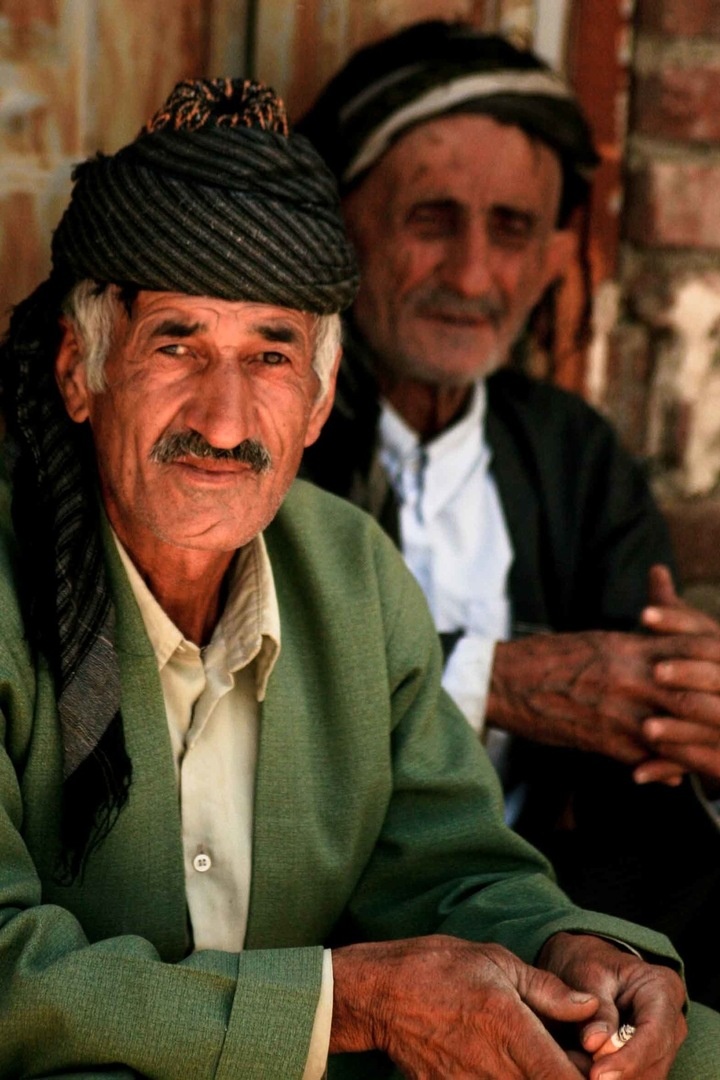
5 - Characteristics and Peculiarities of the Kurdish Issue
- The Kurdish issue is not a question of occupation in the classical sense, although it involves national oppression. It is the result of maps drawn up by international forces under the specific international balance that emerged after the First and Second World Wars.
- The Kurdish nation is one of the largest nations in terms of population without a national entity. There is hardly any other nation with such a population, and so rich in wealth, where the policies of Western countries and the internal interactions of these policies have prevented them from forming their own nation-state. Traditional colonialism had not permitted the existence of an independent Kurdish state, and had intentionally left the problem unresolved and open.
The political and geographic space of the Kurdish issue – even before the changes in the new international and regional balance of powers due to the general and comprehensive capitalist crisis – have always been the space of peripheral states of capitalism, dominated by double plundering, severe class inequality and a low level of political freedom, coupled with a national injustice, which have been well-established by the colonial divisions, and did not end with what was called “the national state”.
- The Kurdish issue is objectively an international issue, because of its distribution among several countries, which have differed in their international alliances since their inception. Any movement of the Kurdish file in one of these individual countries has always had reactions from four countries and indirectly from the countries allied to the four countries, making it a permanent international arena of competition.
- The social vehicle of the Kurdish national project is not the bourgeoisie. The Kurdish nationalist movement has always been governed by many basic factors, most notably the nature of the social forces that raise the slogans of the Kurdish project, the changes in it at various stages and in different countries, and the impact of international transformations and conditions of development – both general and particular – of the four countries.
- For comparison, the European peoples of the eighteenth and nineteenth centuries, for example, formed their own nation states in the period of the transformation of the European bourgeoisie from a class-in-itself to a class-for-itself, and began to form its market (i.e. its national state).
- With the decline of the international revolutionary movement, and decline of the national state formula which was threatened by USA projects of fragmentation in 1990s, the revolutionary and progressive Kurdish forces have declined, and, in some places, emerged leaders with little or no connection to the deep interests of the broad Kurdish masses or, at best, with poor political experience and intellectual maturity, even if they have an honest spirit to struggle and sacrifice.
- Today, with the decline of imperialism, its traditional allies, and the followers of these allies, the horizon reopens to real solutions to national issues in the region, and to the necessary sorting in the social and political forces bearers of the Kurdish issue and ambitions, in a way transcending the traditional isolationist separatist form consistent with the imperialist interests, toward a new form consistent with the natural course of the Great East peoples movement, which is a movement seeking to the integration of these peoples, and to the solution of their problems on the basis of their common denominators mentioned above.
- With exacerbation of the crisis of imperialism, which begs the serious question about its own existence as a historical phenomenon, and with its frantic quest for fragmentation, there must be an assessment of the narrow national projects in terms of the extent to which they should be considered reactionary or progress.
- It is clear that the current condition of change in the new international balance of power, which is witnessing imperialist and US retreat, has reached a point that allows raising the question of a voluntarily and consensually self-determination and unity of all peoples of the Great East, based on their commonalities, and open it to serious discussion.
- This will build a new human-political-economic bloc in the world, that will implicitly solve the national issues of various peoples in a way that serves their own interests, not imperialist interests.
- It is an established fact that the form of national state development has created through historical accumulation a certain level of coexistence and integration of the various nations in the East, and no real solution to the Kurdish issue can ignore this fact.
6. Kurdish Issue and Various Agendas
- In the context of the current historical turning point, the Kurdish issue is gaining increasing interest, and is impacted by the polarization in political positions about all issues.
- Four positions of this issue can be discerned, regardless of the political media propaganda accompanying the development of the situations:
(1) Continuation of the mentality of denial of the existence of a Kurdish issue, through oblique ways, from various regimes of the countries where Kurds live. The same mentality is also found in some political and cultural elites, including some of the opposition parties. In light of the regional polarization, the current international conflict, and the exploded crises in the region, these regimes elites are trying to use the Kurdish issue as an intra-national and inter-national pressure card, or to procrastinate solving it under the pretext of maintaining the territorial unity of the involved country, and preventing its fragmentation, at the same time their adopted policies, including their crises management policies, contribute in laying the foundations and creating the premises of all sorts of the potential – and the US desired – fragmentation.
(2) Some Kurdish elites tend leap into the dark, by hailing "independence" at any price, under the banner of a legitimate national right, not taking into consideration if there is a real and reliable possibility to achieve it, and if it is of enough reliability, and stability. They also have not reflected on the consequences of such a unilateral procedure under the current historical situation, especially when taking into account the possible rapid changes in the positions of the Western powers that support and instigate this step, in their attempts to continue the policy of containing all regional powers and parties, along with feeding and controlling the their internal conflicts.
- USA, through its positions, is practically working to feed the two former positions to varying degrees, and alternates between them according to the requirements of the American interest in the international moment concerned.
(3) The third position, which this document is an expression of it, is a position which recognizes the right of self-determination, in principal, at the same time it sees its concrete embodiment in a radical, comprehensive, integral, and unitary framework embracing the whole peoples and nations of the region, namely a voluntary integration, as a realistic outlet, as a solution that buffers two dangers threatening all national rights of the peoples, including the Kurdish people: (1) The danger of denying the right of the right's owners. (2) the danger of using this right in favor of international agendas, by creating entities in a partial and coercive way, incompatible with both the real interests of the peoples of the region and the objective present and future course of international development.
This position does not mean in any way to dismiss the need to continue the step-by-step struggle for elimination of all forms of discrimination against the Kurds, wherever they are found.
- The Kurds declaration of their “own state” would put them directly under pressure and blackmail by regional and international powers, and at best, would make the Kurdish issue an arena for settling the accounts of these powers, under a circumstance of fluctuations in axes and alliances that transcends any expectations that may be found inside a traditional nationalist mind.
- Under the current unstable regional and international balance of powers, passing any form of separatist tendencies, under the banner of the right to self-determination, would result in:
- Kurdish - Kurdish conflict.
- Kurdish - Arabic Conflict.
- Kurdish - Turkish conflict.
- Kurdish - Iranian conflict.
This means that things would be complicated, and after a while, the Kurds would be pushed to disbelieve in – and feel repulsive toward – the right of self-determination, and we – peoples of the region – would enter a stage of exclusively minor infighting.
- The proposal presented by the narrow-minded Kurdish nationalists about the establishment of small entities will lead to the withholding of the right from the rest of the Kurds in the rest of the countries, which constitute the majority of the Kurds.
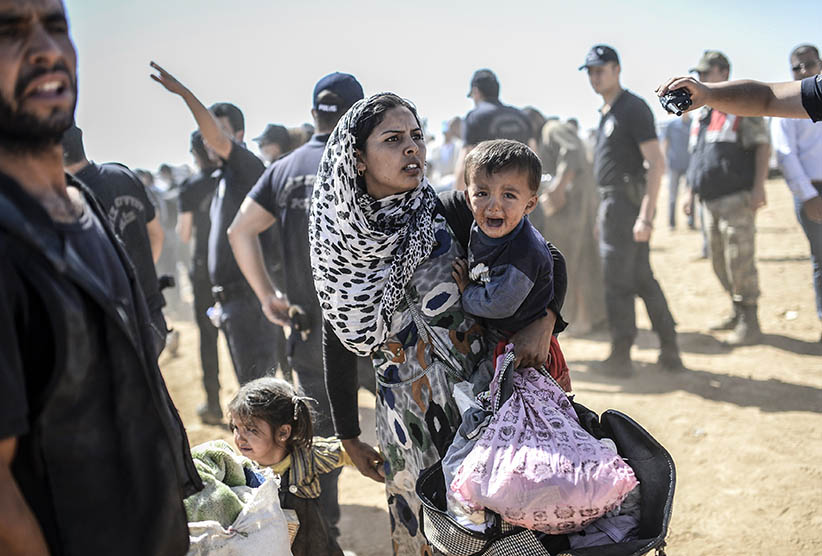
7. Self-determination within Unity
- The international balance of power continues to crystallize in the direction of ending the unipolar world (i.e. the USA-dominated world of the last two decades) emerging of a multi-polar world (Russian/ Chinese/BRICS, and the Peoples Pole as a basis). The world and the region are witnessing a conflict between opposing major international geopolitical projects. Some of these projects are based on attempts to entrench domination, while others are based on equality, complementarity, and mutual benefit, as part of the efforts to consolidate the overcoming of US domination.
- The project of the Union of Peoples of the Great East has objectively all the potentials to be an international geopolitical project towards the elimination of the entire imperialist colonial system.
- The historical counter-reaction of the peoples of the region to the projects of fragmentation and “creative destruction”, and the American-style “clash of civilizations”, is to further advance towards the unity of the interests and peoples of the Great East, which is possible under the transformation of the new international balance of power.
- The Union of Peoples of the Great East is based on voluntary understanding among all peoples of the region. The historical juncture of this strategic transformation will take place when imperialism is at its weakest moment and unable to pass its plans as before.
- The so-called self-determination of the Kurds should not be of a limited geographical character; rather, the self-determination and sovereignty of the peoples of the entire region, including the Kurds, in all their different places in the four countries, should be exercised in its true sense, namely in the sense of true independence of any imperialist center.
- Unilateral separatist forms or steps would be a hindrance to this objective course, because of the secondary conflicts they would elicit.
- The application of this right in practice relates to the change and development of the subsequent international and regional balances of power, and the size of crises in each country.
- This right will only crystallize and enter into existence within a voluntary understanding among the peoples of the entire region, in a form that deepens their brotherhood and unifies their struggles against imperialism; the enemy of all peoples.
- That means implementation of the right of self-determination on the ground has to do with an understanding among the Arab, the Kurds, Turks, Persians and the other nations, who are all brotherly related throughout history, ad who should reach a higher level of brotherhood in defending each other's rights.
- Self-determination of peoples of the region and solution to their suspended issues, including the Kurdish issue, will not be achieved and realized unless it is organically linked to a united destiny of these people.
- Any solution must guarantee the full cultural and legal-civil rights of each individual component, along with the political and social rights of all components together.
- The best formula for the right of self-determination of the Kurdish people in the current transitional period is achieved by the engagement of the Kurdish people, alongside the other peoples, in the battle for a radical change of the entire old structure, including change of the social and national oppression resulting from that structure, and advance towards some form of union, based on mutual recognition of rights. This is opposed to any other formula used as a tool of escalating tension, through illusions of support by Western powers in general, and by the United States in particular.
- With this in mind, it becomes clearly understandable why the Americans are pushing for the establishment of small Kurdish entities, that will elicit various regional conflicts of clustered-like and network-like distributions.
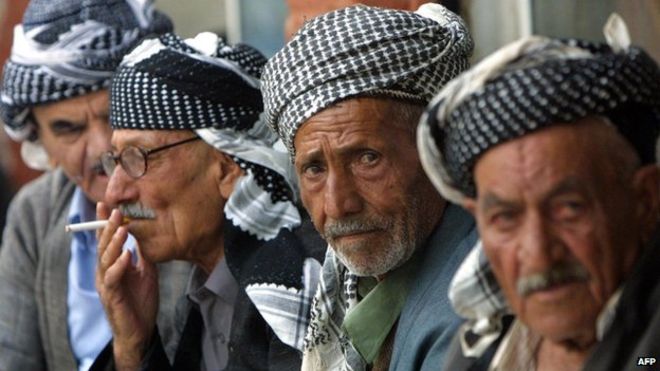
8- Syria within the wanted models
- The Kurds in Syria constitute an integral part of the Syrian people in its history, civilization, and class and political struggle.
- On the basis of the unity of the fate of the Syrian people, what is required in Syria is not a democracy of religious, ethnic and sectarian components, but rather a democracy of political components that are transient to all nationalities, religions, and sects, that lead a social and political struggle on the basis of comprehensive political programs.
- In the course of their alleged democratic struggle, many forces are trying to replace the forcible discipline of the societal forces (i.e. despotism) with a model of components "democracy" which, according to concrete experiences, means "despotism in another form" by sharing power and wealth among the elites of those components.
- This model (the “components democracy”) objectively puts “omnium contra omnes” (all against all), not on the basis of the contradiction of social interests as a natural matter in any exploitative society, but on the basis of the interests of the elites themselves, and thus disperses the forces of the looted majority in favor of the looters and introduces the former ones into a battle not related to their genuine struggle.
- The entry into this battle hampers the objective development of human society as a whole, in the current historical stage, which is embodied in, and characterized by integration; not only integration within every country, but also integration on the global level. This "democratic model" in a country like Syria becomes an artificial obstacle to the natural development reflected in the unity of interest, history and destiny of these “components”.
- The concrete experience confirms that the "Kurdish situation", in its various dimensions, is in proportional relation of complication with the complexity of the Syrian situation in general. This again confirms that the future of the Kurds in Syria is inseparable from the future of Syria itself.
- The interest of the Syrian Kurds lies precisely in the effort to accelerate the political solution among the Syrians, which opens the way for radical, deep and comprehensive national democratic change, that reflects the interests of the majority of the Syrians regardless of their narrow affiliations. This requires cooperation and coordination with the efforts of the international, regional and internal forces seeking such a solution.
- The current conflict in, and on, Syria is in part a struggle for the coming democratic model of the countries of the region and of Syria which will emerge from its current crisis.
- The success of the model of solving the Syrian crisis politically and peacefully and achieving the goals of this solution in stopping the violence and stopping the external intervention, in all its forms, and stopping the humanitarian catastrophe and treating its consequences, and reaching integral anti-terrorism measures, whatever be the sources of that terrorism, and bringing about the radical, deep and comprehensive national democratic change, at all levels –– the success of this model will leave its mark on the subsequent development of the countries of the region, and the solutions of the crises all over the world.
- Confronting the imperialistic project of fragmentation of the countries of the Great East today, bears a general humanitarian significance, because the success or failure of such a confrontation entails the survival or the annihilation of one of two poles of a profound fundamental contradiction, which the survival of one of them means the annihilation of the other. The problem here lies in the fact that the survival of imperialism will not be "survival" at all, because it will imply the continuation of wars and the extinction of human civilization, which cannot be accepted by vivid peoples and liberty forces!
- In People Will Party, we stand firmly with the legitimate rights of the Syrian Kurds, but we support their struggle for them by legitimate means and in accordance with the interests of preserving the Syrian state.
- We call for emancipating them from injustice, just as we are with the rights of the Syrian people and with the emancipation of it from injustice, and with its right to live a decent life. Some Kurdish leaders are wrong when they think that their issues are separated from the issues of the Syrian people in general.
- The issue of the Syrian Kurds must not only receive their attention, but should be at the heart of the attention of the rest of the Syrian people and their honorable political forces. The interest and struggle of the non-Kurd Syrians for the rights of the Kurds should not be less than the struggle of the Kurds themselves. This issue is part of the general democratic question in the country.
March 2016
People Will party
Translated from the Arabic original by kassioun.org


